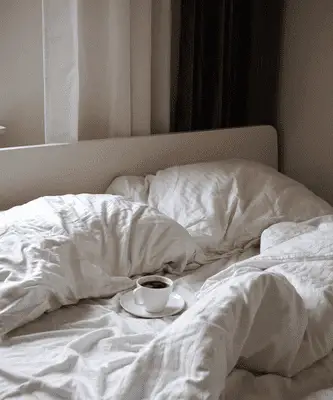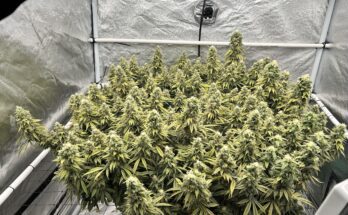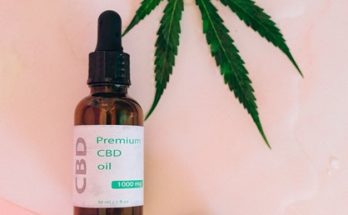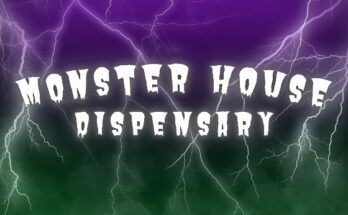https://unsplash.com/photos/hqp_8ViHl4E
Lying awake in bed, staring at the blank walls, is a lonely affair when all you want to do is get lost in an oblivion of sleep. Insomnia ails millions of people worldwide, and often, the lifestyle we lead only fuels this issue. Chronic stress, anxiety, hours browsing online, and lack of physical activity can all cause poor sleep, and leading a healthy lifestyle is how you can improve your situation. However, if you are seeking something more potent, this might be the time to try cannabinoids.
https://unsplash.com/photos/eBW4v2dC-ts
The science behind CBD and THC
CBD and THC come from the same plant family—Cannabis, and their chemical structure is similar then what are the differences between THC and CBD. THC is an intoxicating psychoactive. It has users experiencing euphoric effects, and because of this high, some users can experience paranoia and become more anxious. In contrast, CBD is a non-intoxicating psychoactive. When users take CBD, they cannot become high, nor can they overdose or become paranoid.
There is still much that researchers have to learn about these cannabinoids, but they know that these natural compounds affect change through the endocannabinoid system (ECS). The latter is a molecular system that manages vital functions such as appetite, mood, fertility, and sleep.
The ECS uses its receptors and has them moving through the mind and body to implement change and keep it in a constant state of homeostasis—optimal balance. CBD and THC trigger change through the ECS’s receptors. CBD signals to them while THC binds to the receptors to trigger a shift in the body.
The physical and mental benefits of these cannabinoids are significant. CBD and THC can assist people with anxiety, depression, chronic pain, epilepsy, and the list continues. Purchasing cannabis-infused products have never been more accessible. Professional brands such as Sunday Scaries infuse everything from skincare products to edibles, soaps, vape liquids, and more.

https://unsplash.com/photos/l6BenhrIc2w
CBD and THC for sleep
Marijuana strains vary. Some are better when you need an energy boost, and others you should use outside of office hours as they are far more sedating. Understanding which strains work best is essential to promote rather than deter sleep.
Experts recommend a blend of CBD and THC, specifically an Indica-dominant strain, if you want to ease insomnia, as THC is better for inducing sleep. THC promotes sleep by cutting down the REM sleep cycle. This cycle is the part of sleep where the mind processes dreams and memories. REM sleep is critical for functioning well cognitively, and permanently cutting it out is not advised. Without it, we wouldn’t have dreams, and instead, sleep would be deeper, and some believe that it is more restful. Although REM sleep is critical, temporarily eliminating it is essential for PTSD and insomnia treatment, as THC could deliver respite and a few restful nights of sleep.
If anxiety, rather than nightmares, is plaguing you and causing insomnia, then CBD, more than THC, might work better for you. Hemp-derived CBD with 0.3 percent THC cannot make you high, so there is no risk of becoming paranoid and experiencing more anxiety. THC works like an additive, adding euphoric effects to your mind and body.

https://unsplash.com/photos/KtFiOgyz5IU
In contrast, CBD works by eliminating adverse ailments both physically and mentally. This cannabinoid can ease stress and anxiety and leave you feeling more serene. With your anxiety at a more manageable level, there is less risk of a panic attack which can only fuel your insomnia.
CBD works in managing pain as well. Chronic pain caused by a slipped disc, multiple sclerosis, or other disorders can inhibit you from falling asleep or sleeping through the night. CBD’s anti-inflammatory properties can ease pain and provide relief when traditional medication isn’t an option.
https://unsplash.com/photos/_Utk8ZYT4tI
Taking preventative measures when opting for cannabinoids
Although the list of benefits is significant, it is essential to use these cannabinoids with caution. Studies show that THC is better at encouraging sleep when compared to CBD. However, according to some studies THC can alter sleep cycles and impair sleep when taken for too long. In contrast, some studies show that while CBD works as a wake-promoting agent when taken in low doses, it has reverse effects when taken in high doses.
Tackling your insomnia is vital as poor sleep raises the risk of several mental and physical disorders, including heart disease, depression, and diabetes. Even though you can buy cannabis-infused products safely from professional brands, it is advised that you seek the guidance of a medical professional who is an expert in this field. A doctor can help you distinguish between the good and bad cannabis brands and guide you on dose and frequency while also keeping track of your health to ensure the natural compounds benefit you.
A doctor will help you figure out how you can appease your insomnia. While taking these cannabinoids is helpful, you need a long-term plan so that you don’t depend on these cannabinoids for the rest of your life to sleep well.
FAQ
How does CBD help with sleep?
In contrast, CBD works by eliminating adverse ailments both physically and mentally. This cannabinoid can ease stress and anxiety and leave you feeling more serene. With your anxiety at a more manageable level, there is less risk of a panic attack which can only fuel your insomnia.
How does weed impact sleep?
However, according to some studies THC can alter sleep cycles and impair sleep when taken for too long. In contrast, some studies show that while CBD works as a wake-promoting agent when taken in low doses, it has reverse effects when taken in high doses.
Additional Resources:
Kratom
CBD Massage Oil
CBD Salve



